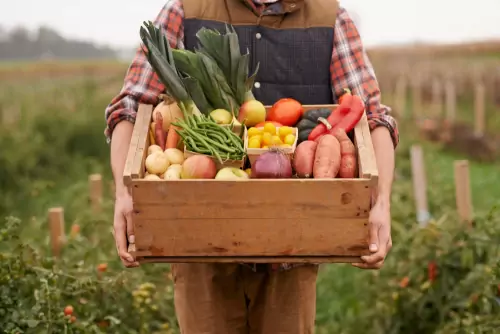Running an agricultural farm in the UK is a rewarding yet challenging endeavor that requires a deep understanding of both crops and livestock. In this blog post, we'll explore the intricate process of farming, covering key aspects of cultivating crops and raising livestock in the UK.
Cultivating Crops: The Heart of Agricultural Farming
1. Crop Selection and Planning: A Strategic Approach
- Market Demand: Identify crops in demand and assess market trends to make informed planting decisions.
- Crop Rotation: Implementing a crop rotation plan helps maintain soil fertility and reduces the risk of pests and diseases.
2. Land Preparation and Planting: Setting the Foundation
- Soil Testing: Conduct regular soil tests to determine nutrient levels and pH, allowing for tailored fertilization.
- Precision Farming: Utilize technology for precise planting, ensuring optimal spacing and reducing waste.
3. Crop Care and Maintenance: Nurturing Growth
- Irrigation: Implement efficient irrigation systems to ensure consistent water supply, particularly during dry spells.
- Pest and Disease Management: Regular monitoring and timely intervention help control pests and diseases sustainably.
4. Harvesting and Storage: Bringing in the Fruits of Labor
- Timely Harvesting: Harvest crops at their peak to maximize yield and quality.
- Storage Facilities: Invest in proper storage facilities to preserve crop quality and prevent post-harvest losses.
Raising Livestock: Balancing Agriculture with Animal Husbandry
1. Livestock Selection: Matching Breeds to Objectives
- Research: Choose livestock breeds that align with your farm's goals, whether for meat, milk, wool, or other products.
- Herd Health: Ensure that animals are healthy and vaccinated to prevent the spread of diseases.
2. Pasture Management: Sustainable Grazing Practices
- Rotational Grazing: Rotate livestock to different pastures to promote sustainable land use and prevent overgrazing.
- Forage Quality: Monitor and manage pasture quality to provide nutritious feed for livestock.
3. Animal Welfare and Husbandry Practices: Ethical Farming
- Comfortable Housing: Provide adequate shelter and housing facilities for livestock, ensuring their well-being.
- Veterinary Care: Establish a relationship with a veterinarian for regular check-ups and immediate medical attention when needed.
4. Breeding and Reproduction: Ensuring Future Generations
- Selective Breeding: Implement selective breeding programs to improve desirable traits in your livestock.
- Calving/Lambing: Manage calving and lambing seasons to ensure the health of both mothers and offspring.
Sustainable Farming Practices: A Holistic Approach
- Organic Farming: Consider transitioning to or incorporating organic farming practices to meet the growing demand for organic produce.
- Renewable Energy: Explore renewable energy sources, such as solar or wind power, to reduce the farm's environmental impact.
Running an agricultural farm in the UK is a multifaceted endeavor that involves strategic planning, continuous learning, and a commitment to sustainable practices. By understanding the intricacies of crop cultivation and livestock management, farmers can navigate the challenges of the industry and contribute to the sustainable future of agriculture in the UK. Staying informed about advancements in technology, market trends, and environmental practices is key to thriving in this dynamic field.

